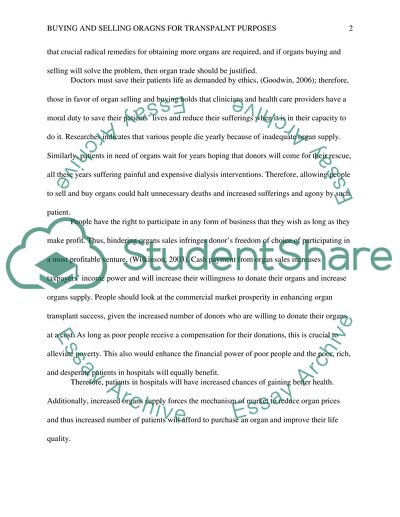Cite this document
(“Ethical Debate for Buying Organs for Transplant Research Paper”, n.d.)
Retrieved from https://studentshare.org/family-consumer-science/1480667-ethical-debate-for-buying-organs-for-transplant
Retrieved from https://studentshare.org/family-consumer-science/1480667-ethical-debate-for-buying-organs-for-transplant
(Ethical Debate for Buying Organs for Transplant Research Paper)
https://studentshare.org/family-consumer-science/1480667-ethical-debate-for-buying-organs-for-transplant.
https://studentshare.org/family-consumer-science/1480667-ethical-debate-for-buying-organs-for-transplant.
“Ethical Debate for Buying Organs for Transplant Research Paper”, n.d. https://studentshare.org/family-consumer-science/1480667-ethical-debate-for-buying-organs-for-transplant.


